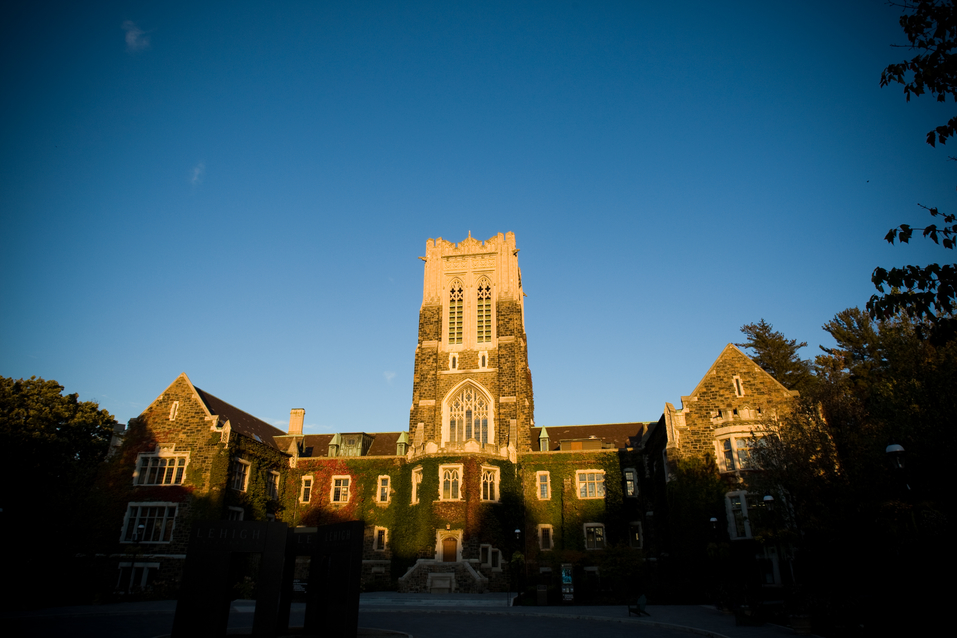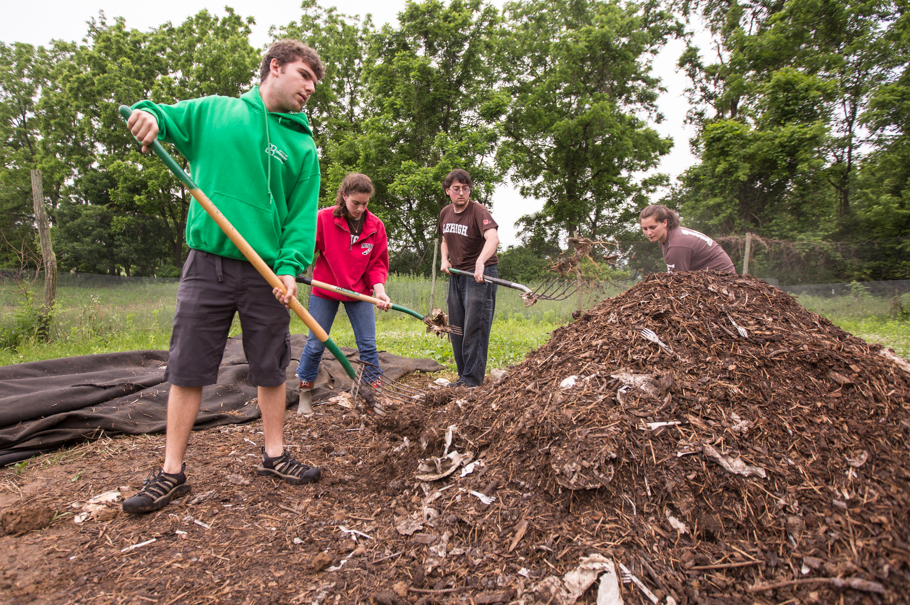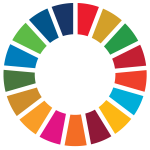Esta web utiliza cookies para que podamos ofrecerte la mejor experiencia de usuario posible. La información de las cookies se almacena en tu navegador y realiza funciones tales como reconocerte cuando vuelves a nuestra web o ayudar a nuestro equipo a comprender qué secciones de la web encuentras más interesantes y útiles.
Campus Sustainable Impact Fellowship
Description
Institution
Lehigh University

Organizations/areas of the university involved
Office of Creative Inquiry, Office of Sustainability
Country
USA
Campus Sustainable Impact Fellows are part of multi-year interdisciplinary project teams focused on addressing challenges tied to the UN’s SDGs that affect Lehigh University’s campus facilities and operations.
Campus Sustainable Impact Fellows are a highly self-selected cohort of undergraduate and graduate students from all disciplines across Lehigh University, focused on addressing challenges tied to the UN’s Sustainable Development Goals on Lehigh University’s campus. CSIFs advance multi-year Inquiry to Impact projects with local partners through Creative Inquiry (CINQ) courses for a total of six credits (three each semester). The courses, workshops, retreats, and immersive experiences of this program integrate experiential learning, research, and entrepreneurial engagement with students leading original and ambitious projects with partners on campus and in the local region. A select number of CSIFs will have the opportunity to participate in the Mountaintop Summer Experience to accelerate their project.
Through engaging in such meaningful, authentic, and incredibly alive projects, Fellows develop skillsets, mindsets, and portfolios to address complex sustainability challenges. Fellows build sustainable enterprises, publish their works in peer-reviewed journals, integrate their insights into campus policies, and champion sustainability practices that will influence present and future generations of Lehigh students, faculty, and staff. The quest for sustainable impact drives the philosophy, pedagogy, and operations of this program with the objective of preparing students to lead lives of impact.
The CSIF program launched in January 2021 with an initial cohort of 28 students, representing 20 majors, working on eight distinct projects. These students have had the opportunity to work collaboratively with the most driven students from across the university on ambitious multi-year projects striving to enhance Lehigh’s sustainability commitment, in line with the newly released Sustainability Strategic Plan 2030. The planning process for the program began 15 months prior with the convening of multiple campus stakeholders, faculty and staff, to craft the course content that would underpin the execution of these projects. The program will continue in perpetuity with projects cycling in and out as they reach their goals or otherwise come to a conclusion, and students will cycle in and out on a yearly (sometimes a semester) basis, one team passing the baton to the next.
Results and impact measured or expected
The scope of the CSIF program, and the projects it supports, covers a multitude of campus-based systems and operations. Currently CSIF projects address food system inequities, the carbon footprint of campus dining, energy efficiencies in facilities plants and academic buildings, monitoring and publicizing campus energy usage via a public-facing dashboard, solving transportation problems, installing anaerobic digesters for food and pet waste, designing and implementing new biophilic living and working spaces, plastics waste and recycling inefficiencies, and stormwater management through Green Infrastructure projects. Thus, we have reached nearly every aspect of Facilities, Business Systems, Campus Planning, and Finance & Administration stems on campus in addition to involving students and faculty from 25 different academic departments. As the program is still in its early stage with the initial cohort, success will be measured in a 3-5 year time horizon, whether the solutions designed in these projects have or are bearing fruit.
Connection with the SDG framework
Students in the CSIF program work in an interdisciplinary manner with campus peers and partners to develop practical, innovative, and sustainable solutions that will create tangible, systemic changes to university operations in alignment with the SDGs. They also: further Lehigh University’s goals of being a model sustainable campus; engage in hands-on fieldwork with faculty mentors experienced in research, designing solutions, and building systems; conduct original research and publish work in journals and conference proceedings, and build professional networks; develop life skills and build friendships with peers at Lehigh and with campus stakeholders; distinguish themselves and become more competitive for prestigious fellowships and awards, graduate / professional schools, or their dream jobs; and finally, have real impact – conducting research, developing and effecting policy solutions, and jumpstarting new sustainability practices is incredibly difficult but also deeply rewarding. Each of these learning outcomes translates directly to actionable outcomes to advance the SDGs.
Barriers and follow up
The primary barrier is faculty time and bandwidth. All faculty project mentors sign on because their project aligns with an existing research agenda, impact agenda, or both. Many are eager to participate; however, this work does not count on their teaching load, and in some cases does not meet the support or standards of departmental promotion and tenure committees, is sometimes a hard sell. We have overcome this barrier through close communication and partnerships with the Deans of Lehigh’s five colleges, and leveraging senior, tenured faculty to mentor projects and therefore provide encouragement for more junior faculty to do the same. One barrier that has not existed is buy-in from various campus stakeholders – all of these projects were vetted by the relevant campus entities and leadership to ensure that their goals were achievable, could be implemented, and were appealing to Lehigh’s overall sustainability goals as well as the SDGs.
Transferability of the initiative
With supportive leadership, the CSIF model could absolutely be replicated and scaled up at any institution. The curricular and co-curricular components are easily implemented; we administer the program via two academic courses, a 1-credit weekly seminar which all project teams attend together, and a 2-credit project-based course which has no lecture or lab components and exists entirely as a vehicle for the ambitious projects themselves. Students are always and increasingly eager to do practical, impact-focused work which makes the world more sustainable, especially their corner of the world during their college careers. Recruiting faculty can be more difficult, but once faculty see the benefits to these projects, they need little convincing. In short, the CSIF could serve as a model for any institution looking to focus time, intellectual energy, and relatively low resources toward advancing their sustainability goals and contributing positively to the realization of the SDGs.
Education 4 SDG funciona gracias a WordPress


